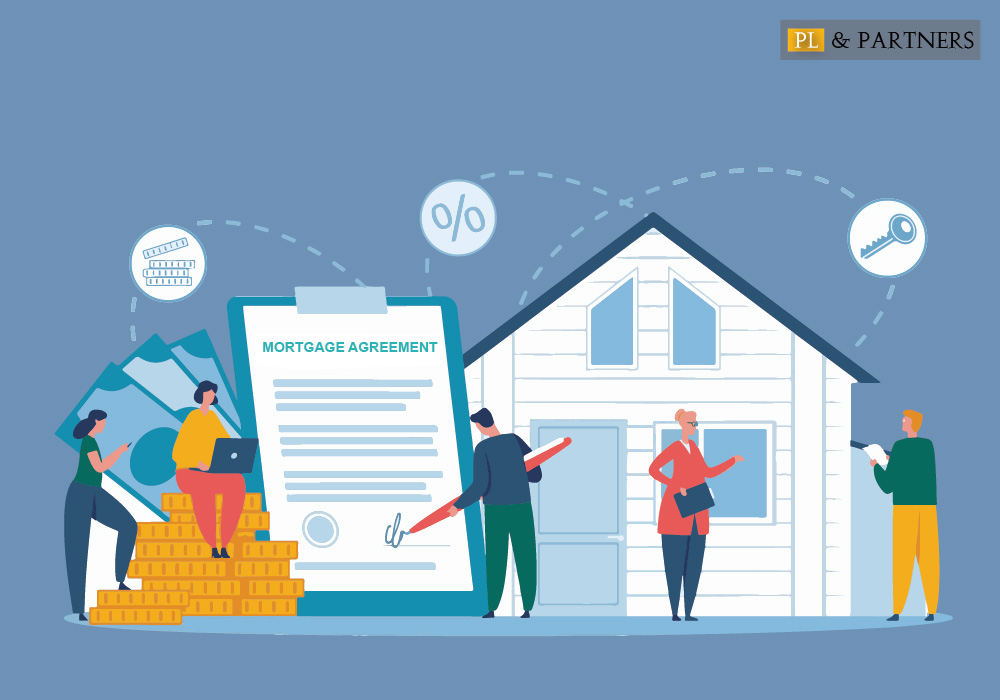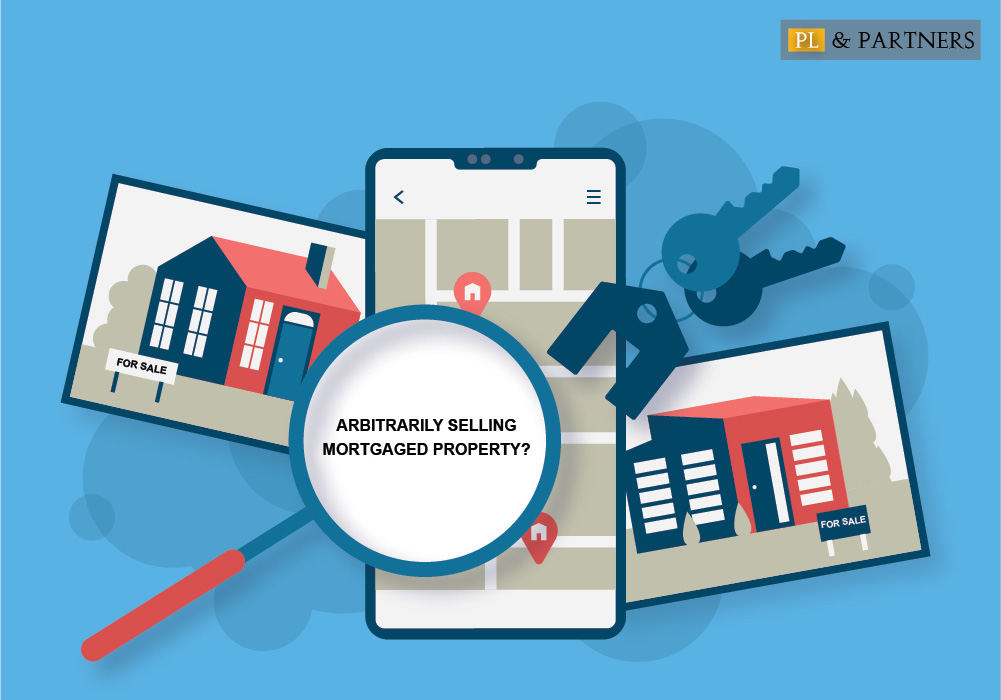In this article, let’s find out if we should arbitrarily sell the mortgaged property and the legal consequences of doing so with PL & Partners Law Firm.
Mortgage is a pretty familiar concept to everyone. When enterprises need capital to run their businesses or when individuals and families need a large amount of money to serve important works such as buying land or building a house, many people will opt to mortgage their assets to apply for loans from banks or other financial entities. In addition, in daily transactions, it is quite common to secure your debt repayment obligations by assets.
Here is the question: is it possible to arbitrarily sell the mortgaged property? And if doing so, what are the legal consequences the mortgagor might face?
In this article, let’s learn more about this topic with PL & Partners Law Firm.
1. WHAT IS COLLATERAL?
Pursuant to Civil Code 2015:
| Mortgage means a party secures its performance of a civil obligation towards the other party using property under its ownership and not transferring such property to the mortgagee. |
Which, the obligor that has to use its property to secure the performance of its obligations is called the mortgagor. Conversely, the obligee is known as the secured party or the mortgagee.
For example: Mr. An needed some capital to do his business, he mortgaged his house to the bank to borrow this amount of money. Therefore, the house becomes the mortgaged property, used to secure Mr. An’s debt repayment obligation to the bank.
The rights and obligations of the parties are also clearly defined. Some of the notable points are as follows:
- The mortgagor must hand over all papers relating to the mortgaged property to the mortgagee. If the mortgaged property is legally required to be registered as a secured transaction, the mortgagor must register the mortgage at a competent authority.
- The mortgagor must notify the mortgagee of the rights of a third party to the mortgaged property.
- If the mortgaged property is used to secure more than one obligation, the mortgagor must notify each subsequent mortgagee of the previous mortgages.
- Unless otherwise agreed by the parties, the mortgagor shall still keep the property and may exploit the property, and enjoy the yields and profits from the mortgaged property (unless the yield or profit also belongs to the mortgaged property or the exploitation can lead to the loss and reduction in value of the mortgaged property).
- The mortgagor must conserve and preserve the mortgaged property and must take necessary measures to overcome the risk of damage to the property.
- The mortgagor shall not sell, exchange, or give the mortgaged property and may only lease, lend or use the mortgaged property to secure the performance of other obligations “if so agreed or otherwise provided for by law.”
For instance: Back to the case of Mr. An.
When mortgaging the house to the bank, Mr. An had to give all documents of the house to the bank.
Mr. An is still allowed to keep the house to live in, but it will not be sold, exchanged, or gifted.
In case he wants to lease or lend the house, Mr. An must reach an agreement with the bank.

2. CAN WE ARBITRARILY SELL THE MORTGAGED PROPERTY?
As noted above, in most cases, the mortgagor will not be allowed to arbitrarily sell the mortgaged property.
Deliberate violations shall be handled in accordance with the law.
In only 03 special cases specified in Articles 320 and 321 of the Civil Code 2015, the mortgagor can sell, replace, exchange or gift the mortgaged property.
They are:
2.1. Case no. 1:
Mortgaged property are goods circulated in the process of production and business. In this event, the right to demand payment from the buyer, the proceeds received, the property formed from the proceeds, the replaced or exchanged property can become the mortgaged property.
2.2. Case no. 2:
In case the mortgaged property is not goods circulated in the process of production and business, the mortgagor is entitled to sell, exchange or gift the mortgaged property if so agreed by the mortgagee or as prescribed by law.
2.3. Case no. 3:
In case the mortgaged property is a warehouse, the mortgagor is entitled to replace the goods in the warehouse, but must ensure that the value of the goods in the warehouse is exactly as agreed;

3. WHAT ARE THE CONSEQUENCES OF ARBITRARILY SELLING THE MORTGAGED PROPERTY?
In case the mortgagor deliberately sells the mortgaged property, they shall bear the following consequences:
- First, the transaction of sale and purchase of mortgaged property is invalid if the mortgagor violates the regulation, arbitrarily sells the mortgaged property that is not permitted by law as mentioned above. At that time, the mortgagee has the right to request the mortgagor or a third party holding the mortgaged property to hand over such property to the mortgagee for disposal of the property in accordance with Article 323 of the Civil Code.
- Second, if the arbitrary sale of mortgaged property that violates the above regulation causes damage to the mortgagee, the mortgagor must be liable for compensating for the damage.

Thus, PL & Partners Law Firm has shared with you about mortgaged property and the consequences if you arbitrarily sell it.
Hope the above information has helped you better understand this topic.
If you need further legal assistance, please contact us at:
PL AND PARTNERS LAW FIRM
Headquarters: 46th Floor, Bitexco Financial Tower, No. 2 Hai Trieu, Ben Nghe Ward, District 1, Ho Chi Minh City, Vietnam
Office: Lot 1.16 Viva Riverside, 1472 Vo Van Kiet, Ward 3, District 6, HCMC
Hotline: 093.1111.060
Email: info@pl-partners.vn
Facebook: www.facebook.com/PLLaw
Website: www.PL-PARTNERS.vn – www.HOIDAPLUAT.net – www.THUTUCPHAPLY.org
We are always ready to assist you.
| The article is based on the applicable law at the time of writing and may no longer be appropriate at the time you read it due to changes in laws. Therefore, the article is for reference only. |










